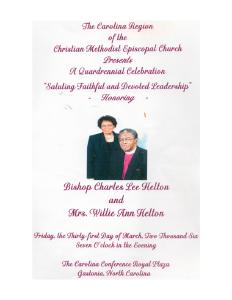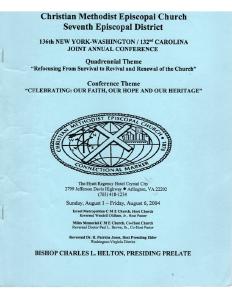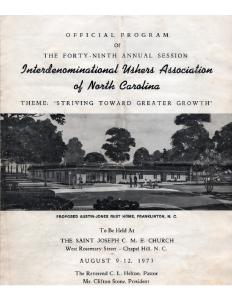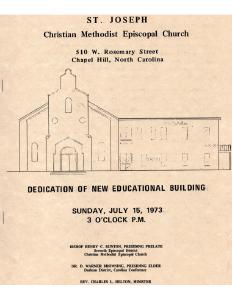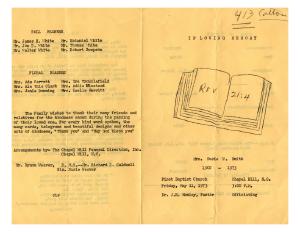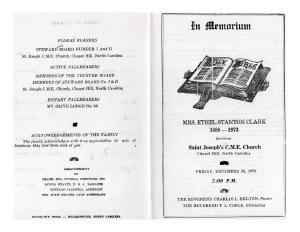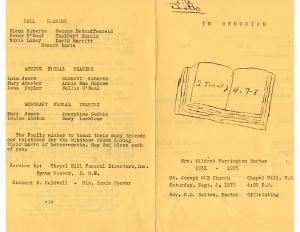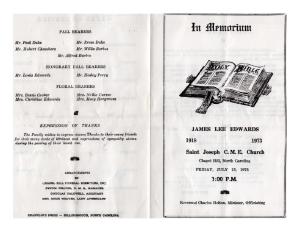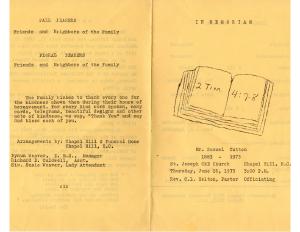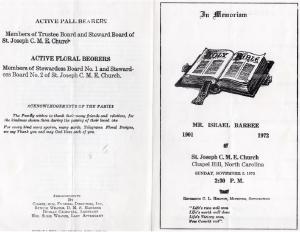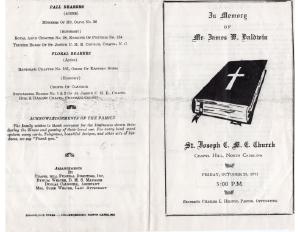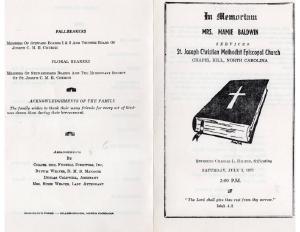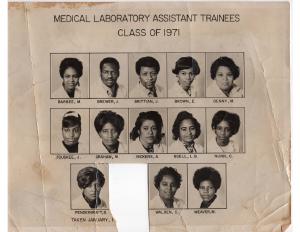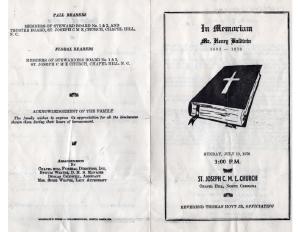Patricia Jackson - On St. Joseph CME Church from 1970-1974
Interviewed by Kathryn Wall on May 16, 2023
"Well, it was always a place [the church] you could come to gain and find out the needs of the community."
- Patricia "Pat" Jackson
This interview is a part of the Marian Cheek Jackson Center’s faith series. In this interview, Pat Jackson discusses the life and legacy of Reverend Charles L. Hilton, who served the St. Joseph’s congregation from 1970-1974 before becoming a bishop. Although Reverend Hilton had a relatively short appointment at St. Joseph CME church, he had a large impact on the community, especially on youth. Mrs. Jackson recounts the minister's open-door policy for all the kids in the neighborhood, including herself. She also recalls the programs and gatherings that took place at that time under Reverend Hilton’s leadership, such as the International Ushers Conference and the ongoing partnerships between UNC Hospitals and St. Joseph’s. All of these accomplishments were made possible by the dedicated congregation, who donated so much of their time, money, and care to maintaining and expanding the church. Mrs. Jackson recounts many of the congregation members who passed away during Reverend Hilton’s time at St. Joseph’s and how the phases of life a minister is in can help grow the church in a certain direction and enrich the community.
